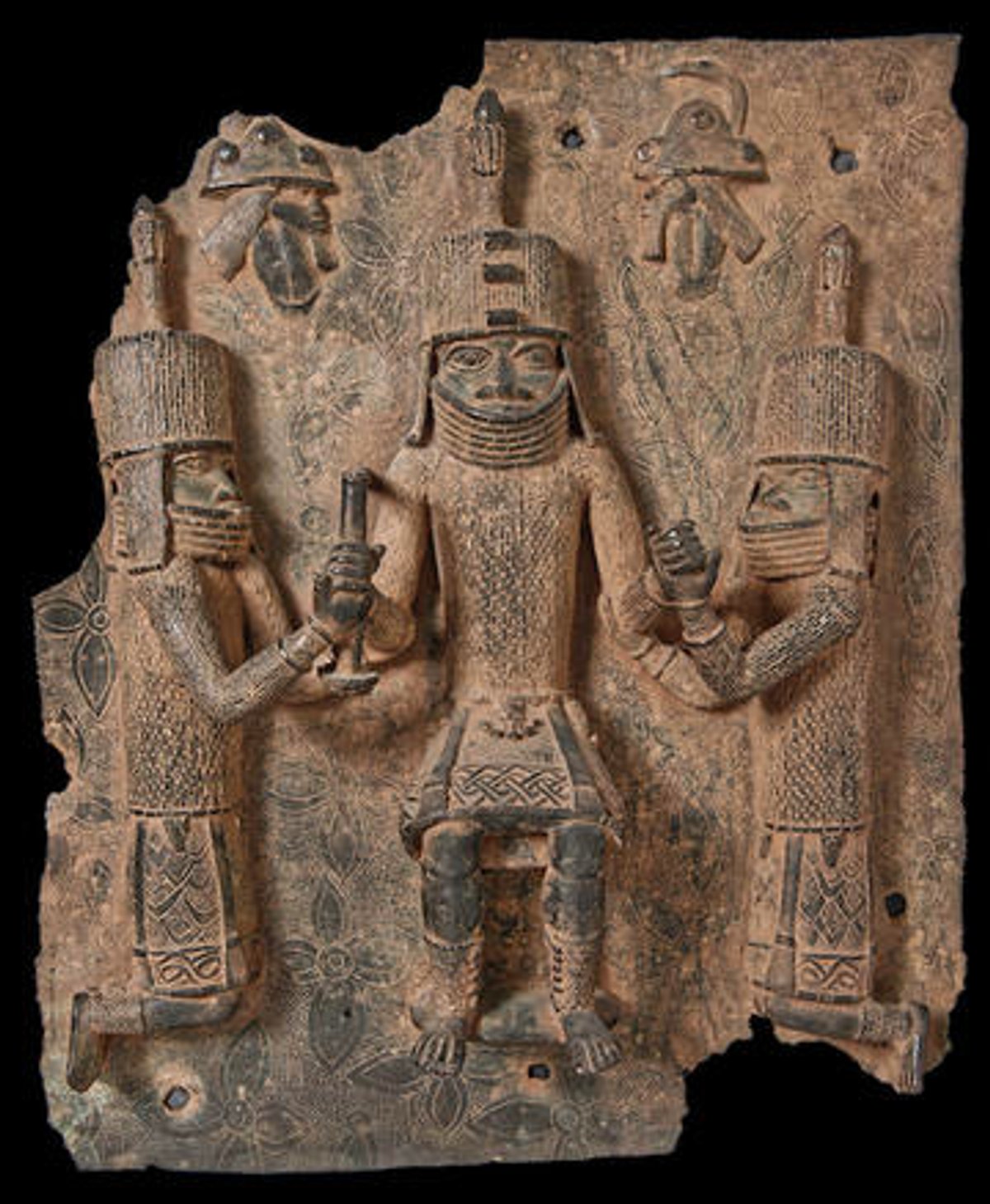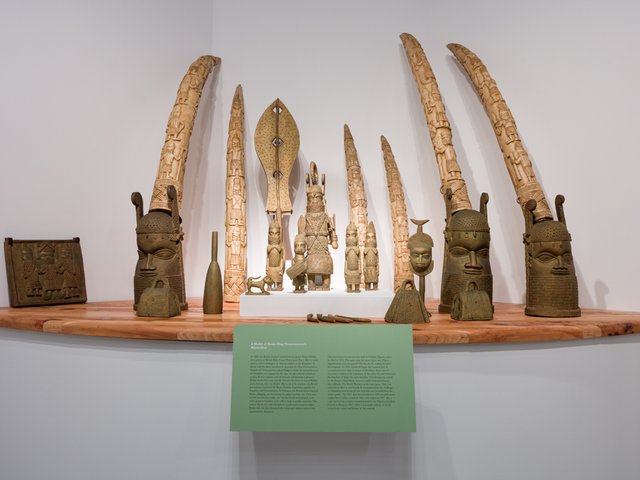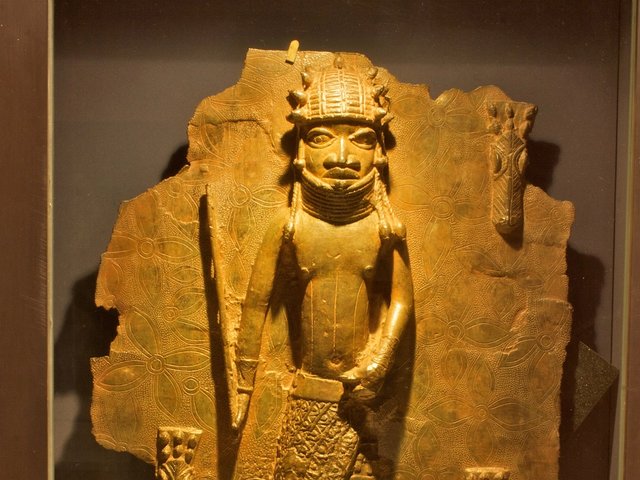The University of Oxford has published a list of 145 objects in its collections that were looted in the 1897 raid by British troops on the royal palace in Benin, the latest stage in a process that the Pitt Rivers Museum director expects will lead to repatriations to Nigeria.
The interim report compiled by Dan Hicks, a curator at the Pitt Rivers Museum and author of The Brutish Museums, identifies 100 looted items in the collections owned by the university, a further 45 on loan from private owners, and another 15 items that may have been plundered during the military operation but whose provenance is not completely clear.
Hicks writes in the report that while “decisions about deaccessioning and returns lie with trustee bodies not individual curators such as myself, this document has been researched and written in the firm belief that the work of restitution begins in part with the sharing of knowledge, and in the professional conviction that practical progress in the restitution of African cultural heritage is of the utmost importance in the 2020s.”
The Pitt Rivers Museum has long been engaged in the Benin Dialogue Group, says Laura van Broekhoven, the museum’s director. “We are working with partners in Nigeria to find paths forward,” she says. “The report is an important step in the process.”
Around 10,000 objects in total were looted during the raid on the city of Benin and are now scattered around the world in some 165 museums and many private collections.
“The way in which the Benin objects were collected is one of the most explicit examples of British colonial power removing art by force from a place and nation in the interests of imperial expansion,” the Pitt Rivers Museum says on its website.
Two UK institutions, Aberdeen University and Jesus College, Cambridge, returned looted sculptures to Nigeria last month. Germany has signed a memorandum of understanding with Nigeria on transferring ownership of around 1,100 looted objects in German museum collections in 2022.
The University of Oxford report includes 43 plundered items that are on loan from the Dumas-Egerton Trust and two on loan from Mark Walker. Of the 100 items owned by the University of Oxford, three are part of the Ashmolean Museum collections and 97 belong to the Pitt Rivers collection. The items, which came to the university from around 20 different sources, include brass plaques, bronze figures, carved ivory tusks, musical instruments, weaving equipment, jewellery, and ceramic and coral objects.
The university published a set of guidelines for procedures in handling claims for the return of cultural objects in July 2020. Under those guidelines, the board of visitors of the university’s individual museums make recommendations to the University Council, which informs the claimant of its decision. That process has not yet begun.
“I am hopeful that because so much of the work has already been done, it won’t take too long” to repatriate the looted items, Van Broekhoven says, adding that she hopes the long-term cooperation with the Nigerian institutions will “make it less onerous” and “decolonise the process of returns.”
The report can be viewed online here.




